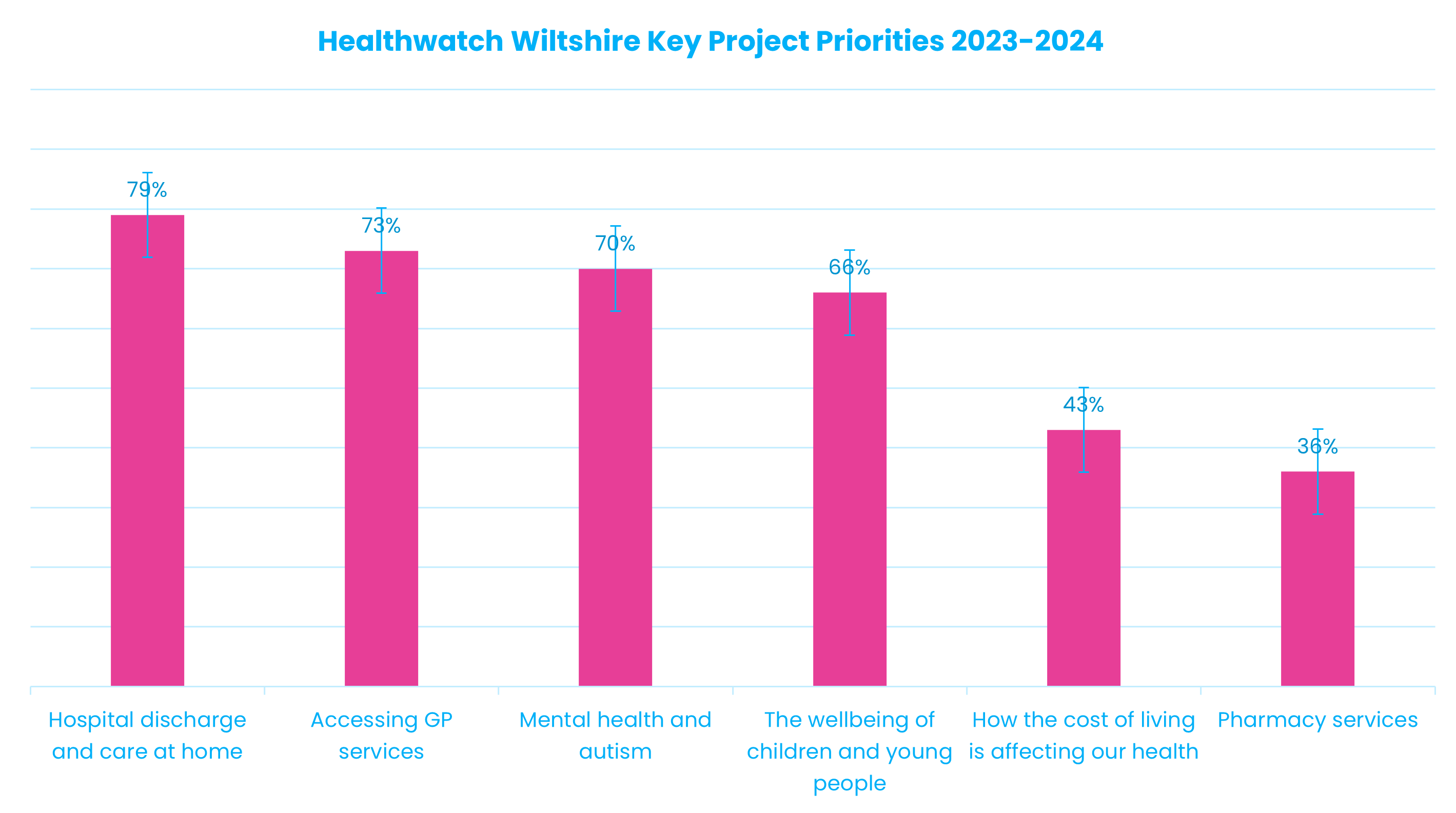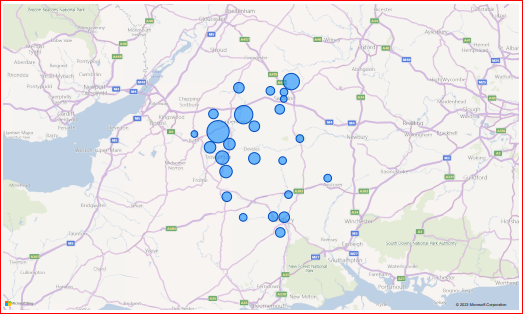How we set our priorities

Each year Healthwatch Wiltshire sets its priorities for the year ahead based on the experiences that we hear from local people.
These are gathered by:
- Reviewing feedback that we have received over the past year
- Conversations with our Local Leadership Board and volunteers
All the evidence and feedback we gather is shared with our Local Leadership Board and it is their role is to decide what areas we focus on in the year ahead.
We also talk to local commissioners and voluntary sector organisations to ensure our work can add value to what they’re doing and to check that we aren’t duplicating work that’s already being done elsewhere.
While other people can suggest areas of focus to us, we are an independent organisation and decide our own workplan.
Our priorities for 2023/24
Thank you to the 127 people who completed our Help us shape our key projects in 2023/24 online survey that ran in March 2023.
The survey invited respondents to choose their preferences from a list of six key project themes, all of which came from the feedback we’d received over the previous year:
- Hospital discharge and care at home/virtual wards
- Children and young people’s wellbeing
- Mental health and autism
- Access to GP services
- Pharmacy services
- How the cost of living is affecting our health
The chart below shows the results of the survey. The map shows where our respondents came from.


What people told us
Here are some of the key themes people raised in our survey:
- Health and social care services should be working together more.
- Better communication is needed when patients are discharged from hospital.
- Services should be more aware of patients with disabilities, particularly hidden disabilities.
- Better mental health support is needed, particularly when people transition from Child and Adolescent Mental Health Services (CAMHS) to adult mental health services.
- Healthcare workers should receive more training to support autistic people.
- Pharmacies are overstretched and under-resourced, with many closing.
- More signposting is needed in local communities to help people with the cost of living.
A snapshot of your comments
Your thoughts on the key themes.
“I should not be able to see any difference between the NHS and Local Health Service. It should just be one service, provided by one authority.”
“Getting support in the right place to enable people to be discharged, when ready, into their home environment so enabling a speedier recovery.”
“There is pretty much no provision for adult autistic people at all, mental health or otherwise.”
“Access to mental health services for children and young people are a priority. I see so many children struggling with their mental health, especially following lockdown, which has huge impacts on their lives.”
“I am very concerned about pharmacy closures. The government needs to ensure these businesses remain viable, especially now they are an invaluable source of healthcare now GP care is so difficult to come by.”
“People have never been so worried, anxious, and depressed about 'trying to exist' on tightening budgets, watching every penny and avoiding putting the heating on.”
Our planned work for the year ahead
Based on the survey responses we received, and following a discussion with our volunteers and our Local Leadership Board, the following four priority areas have been agreed:
- Hospital discharge and care at home/virtual wards - Hearing the views of people who have been discharged from hospital with an NHS@Home (virtual ward) package, and how this is working for them.
- Children and young people’s wellbeing – finding out what young people are concerned about and what local support they would like.
- Mental health and autism – our joint project with Wiltshire Service Users’ Network to find out what autistic people, and their carers and families, think of local mental health services.
- Access to GP services – continuing our work to see how practices are adapting and changing since the pandemic.
What about the other two themes?
We have decided not to do a project on pharmacy services, but we will continue to monitor feedback on these services in the coming year.
A lot of work is already being done on the cost of living crisis, so our role here will focus on providing advice and information about where people can get local support.
Stay up to date with our projects
Here’s how you can keep in touch and get involved:
- Sign up to our news alerts (go to the bottom of our homepage)
- Keep an eye on our Key projects page for the latest surveys
- Have your say using our online feedback form
- Volunteer with us!
- Follow us on Twitter, Facebook and Instagram


